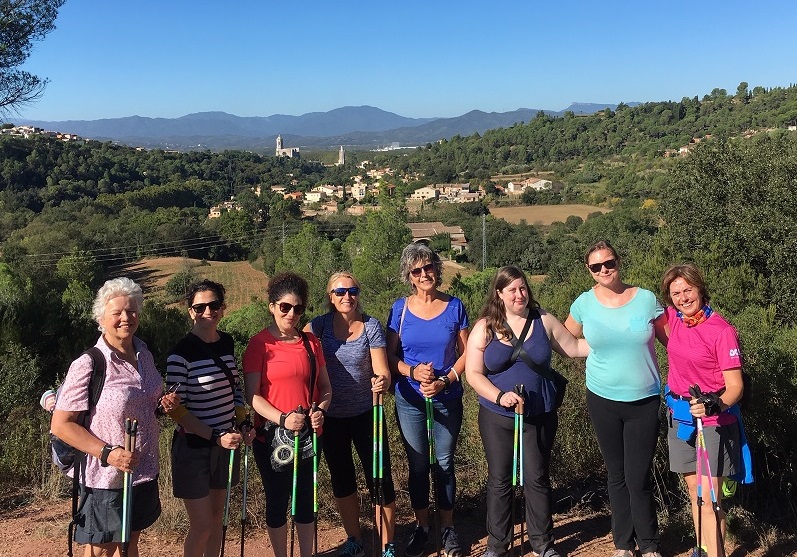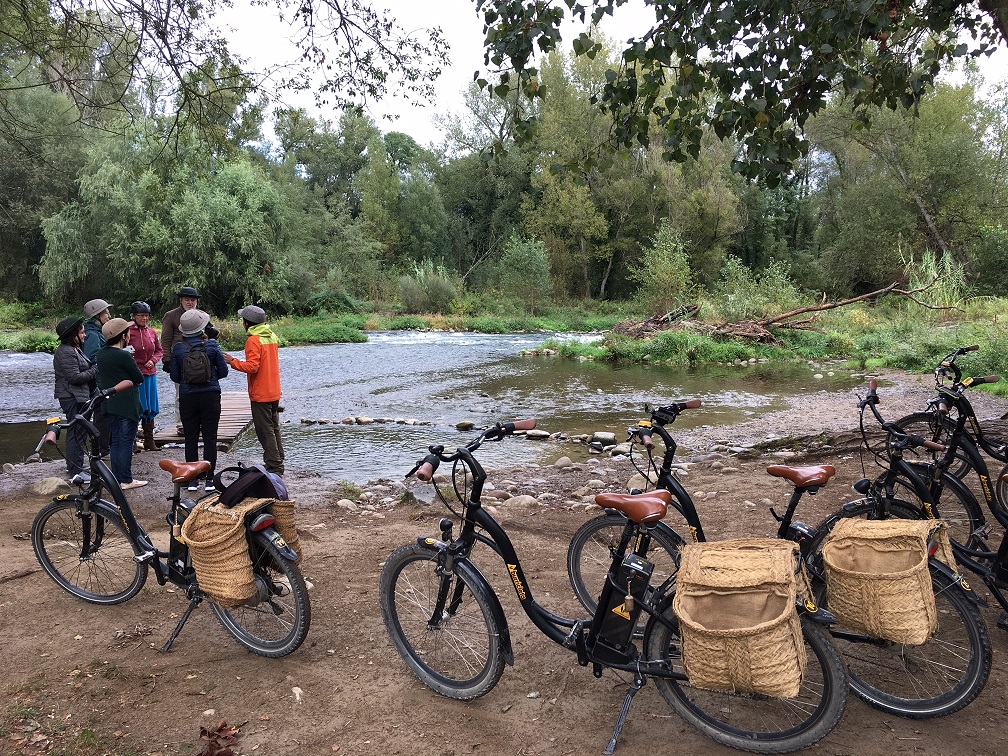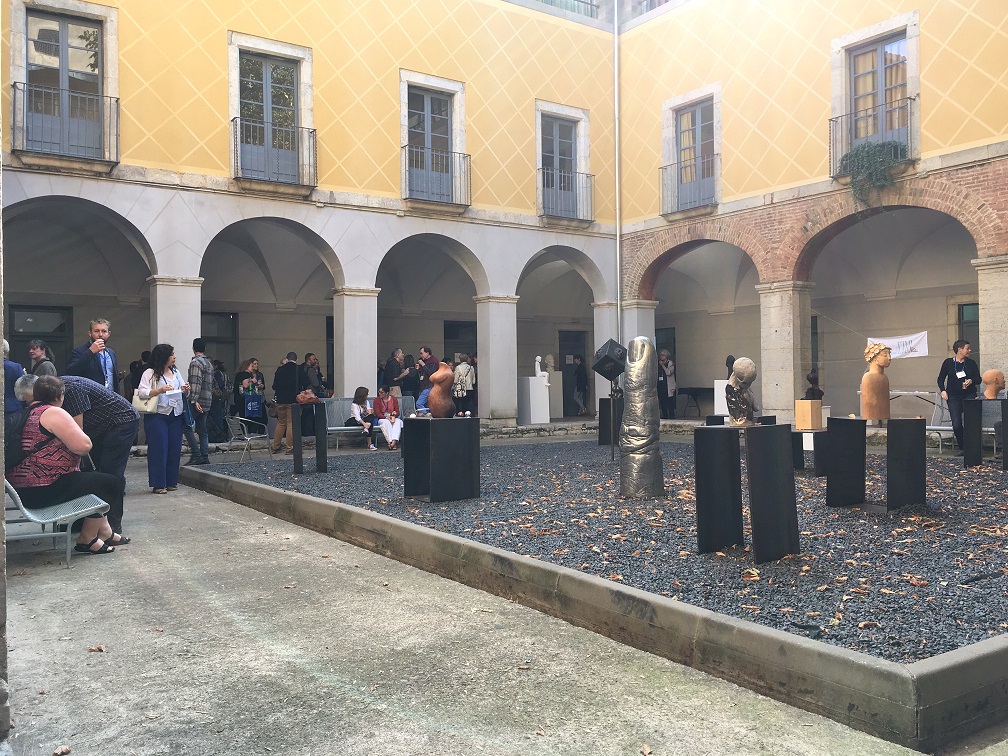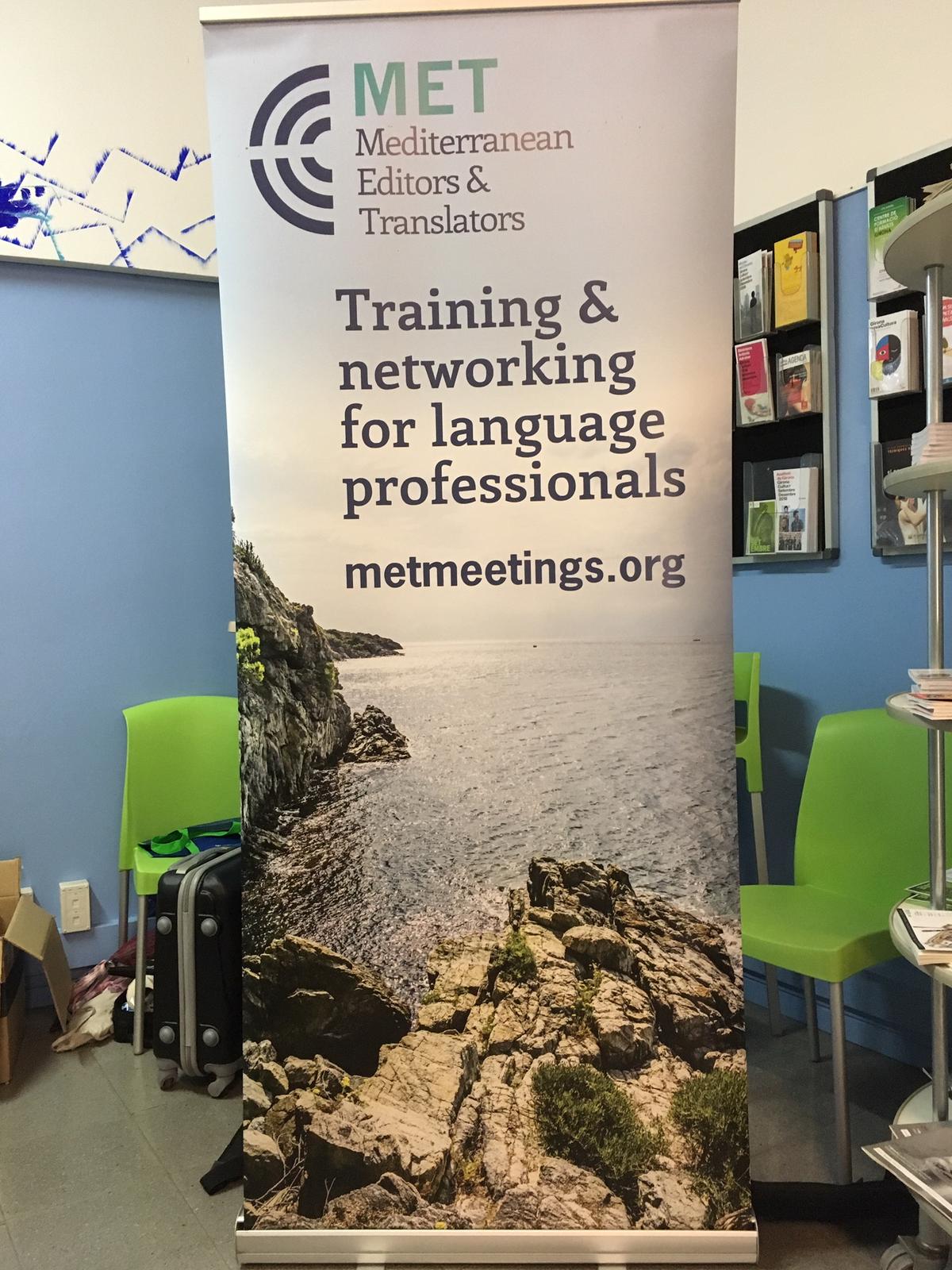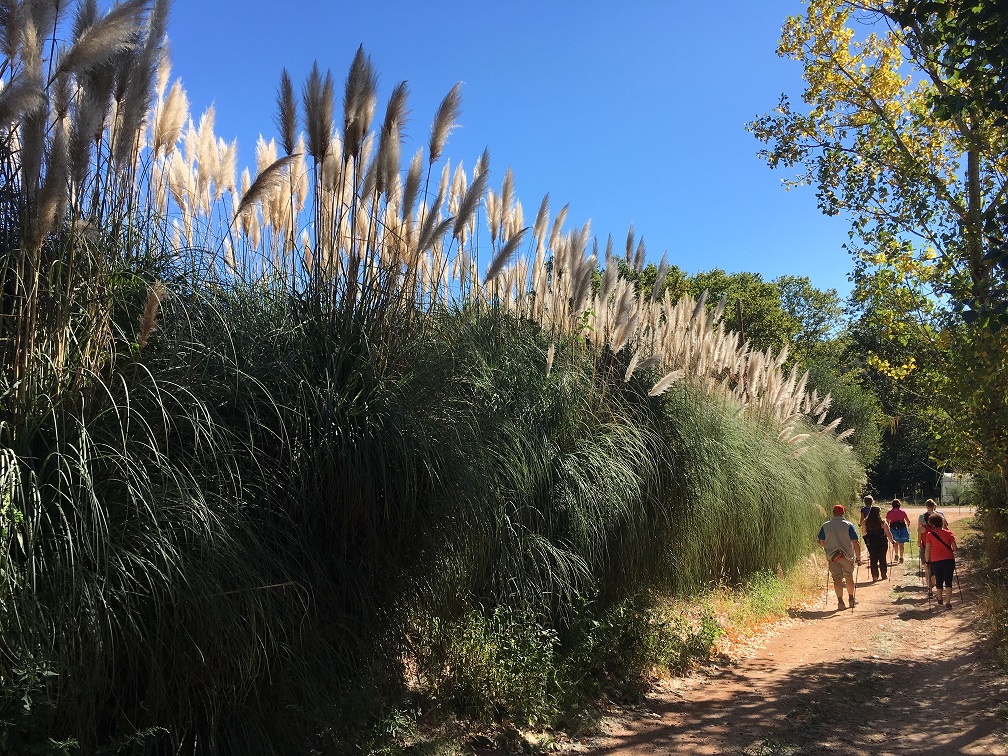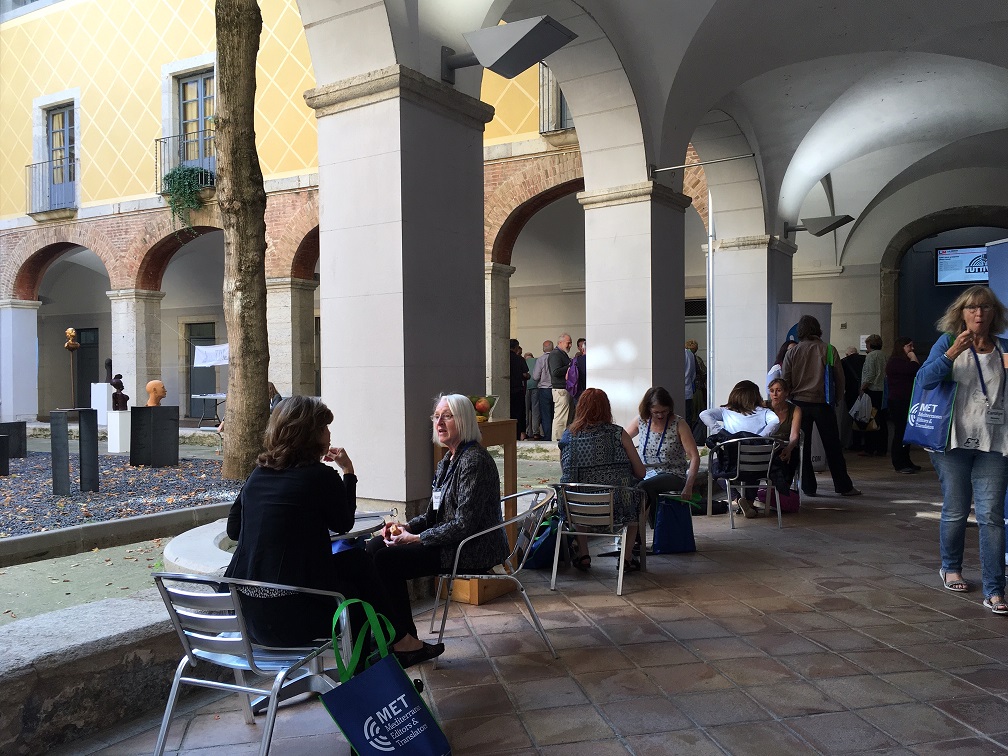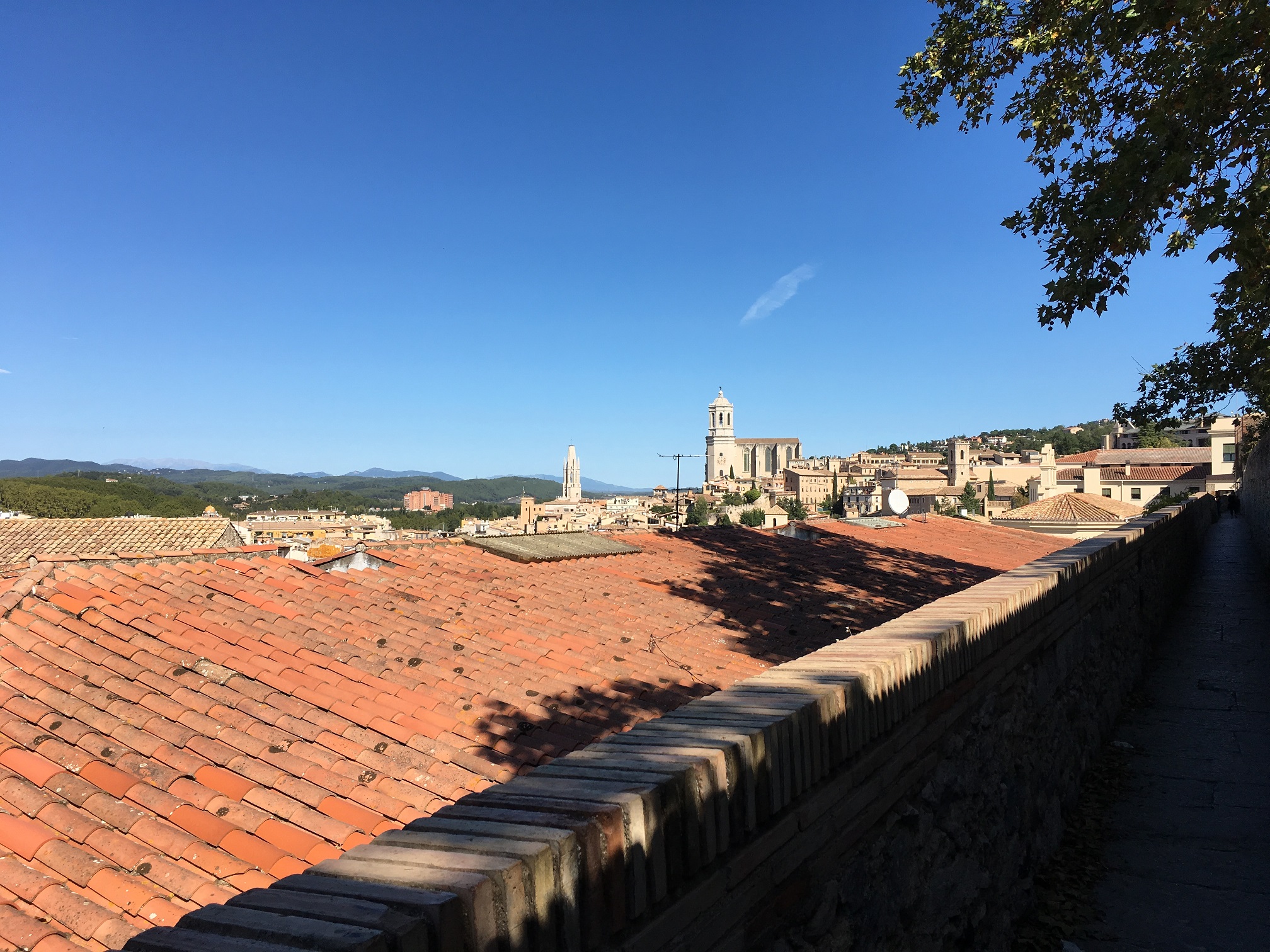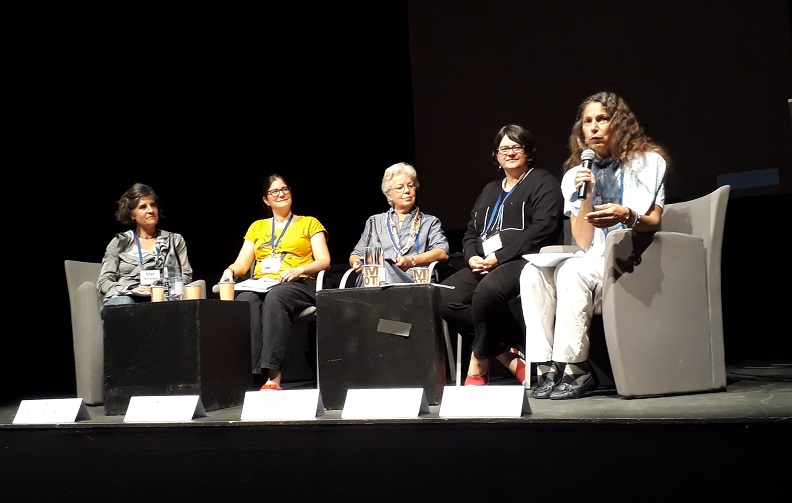
Jackie Senior
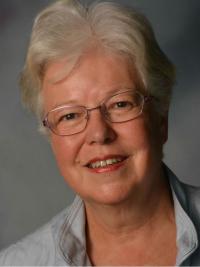 One of the many attractions of MET conferences are the wonderful locations. Girona was well worth the trip – lovely old town, cathedral with the widest nave in Europe and one of the oldest tapestries, numerous good restaurants and bars, and woods and hills within easy reach to walk off the good meals.
One of the many attractions of MET conferences are the wonderful locations. Girona was well worth the trip – lovely old town, cathedral with the widest nave in Europe and one of the oldest tapestries, numerous good restaurants and bars, and woods and hills within easy reach to walk off the good meals.
The 14th annual MET meeting was entitled ′Giving credit where credit’s due: recognition for authors, translators and editors′. Given that this profession is such a self-effacing group, this meeting proved to be an excellent awareness raising exercise. Joy Burrough-Boenisch’s online questionnaire sent out last Spring showed that only 14.5% of us actually expect or ever ask for recognition of our work! How on earth are we ever going to get reasonable pay for our activities if we don’t value our own work? The most common reason given by respondents for not asking for credit was: ‘It has never crossed my mind.’
Thomas O’Boyle (Spain) continued this theme with his talk entitled Knowing your worth, showing your worth in which he urged language service providers to explain to their clients what they do, ensure excellent service and be proactive in seeking credit. It makes sound business sense.
I sat on a panel of academic providers set up by Valerie Matarese to discuss Acknowledgements in the eyes of scholars using language services: perceptions of language professionals. The other participants were Wendy Baldwin (Spain), Kate Sotejeff-Wilson (Finland) and Mar Ferández Núňez (France). Valerie asked us to explain our different work situations, ranging from in-house editor to freelance translator. The questions from the audience revealed the timidity of a lot of language service providers and/or the awe they have for their high-ranking academic clients. It’s worth remembering that professors are just normal people. The panel talked about their own experiences of receiving credit, and offered tips to the audience: the main ones being to pursue excellence, take due pride in your work and start asking for recognition (and not to be put off if one person says no).
On the Thursday evening, I hosted an Off-METM dinner for eight conference-goers to discuss why they wouldn’t want to be credited for their work. Some of the reasons given were: ‘the client may tamper with the text after I return it (and thereby introduce new errors)’, ‘I have been paid, why should I expect credit too?’, ‘I have a list of clients on my website so don’t need credit to be given in other places’ and ‘my client would consider it a loss of face to credit my work because it shows he/she cannot write good enough English’. On the other side of the fence was Iria del Río, editorial director of the official journal of the Spanish Society of Cardiology, which is published in Spanish and English. She explained how hard it is to get any information about the article translators from the journal’s publishers, or to persuade the publisher that credit should be given to the translators.
The conference was a big meeting – 175 participants, with a choice of 13 half-day pre-conference workshops, two or three parallel sessions of talks over two whole days, and 10 Off-METM dinner and 11 lunch groups. The challenge for MET is how to accommodate the ever-growing number of participants while keeping the meeting personal, friendly and so well-suited to language service providers’ needs.
Kirsten van Hasselt
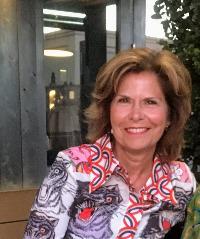 This was my fifth MET conference and, as usual, it didn’t fail to meet my expectations. MET always manages to find the perfect cities and venues for their annual conference. This year was no exception. The wonderful city of Girona, with its many historical buildings, restaurants and great weather, served not only as the ideal place for the conference itself but also as an amazing backdrop for all the Off-METM activities. I attended an Off-METM meal group (for the vegan curious), joined the free walking tour of the historic centre with a great guide, and cycled through the very green outskirts of Girona on a burricleta.
This was my fifth MET conference and, as usual, it didn’t fail to meet my expectations. MET always manages to find the perfect cities and venues for their annual conference. This year was no exception. The wonderful city of Girona, with its many historical buildings, restaurants and great weather, served not only as the ideal place for the conference itself but also as an amazing backdrop for all the Off-METM activities. I attended an Off-METM meal group (for the vegan curious), joined the free walking tour of the historic centre with a great guide, and cycled through the very green outskirts of Girona on a burricleta.
Before the actual conference started, I attended the Translation Revision and Beyond workshop, which was well presented, very interesting and had plenty of interaction. The keynotes and the great variety of presentations were inspiring and informative. And of course, there was the networking. It always feels like meeting up with old friends.
The conference once again gave me lots of creative energy, food for thought and inspiration. Can’t wait for next year’s conference in Split.
John Linnegar
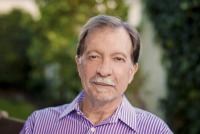 The first keynote speaker was Daniel Hahn, who spoke on In praise of editors: the translator’s view. As a seasoned literary writer and translator himself, he bemoaned the lack of credit given to editors, who, he says, have the potential to either make or break a book. For me, perhaps the most striking takeaway message from this talk, and the conference as a whole, was his Orwellian image of editing being analogous to getting a window cleaned: the view must not be different afterwards (ie, don’t mess with the author’s words and images by imposing yourself on them), but the editor’s interventions must make everything sharper and clearer. He also nicely distinguished the editor’s interventions from the translator’s: editors must help new writers to ‘find their voice’, while translators have to ‘lose their voice’ – the reader should be able to recognize the author’s writing or voice in the translated text.
The first keynote speaker was Daniel Hahn, who spoke on In praise of editors: the translator’s view. As a seasoned literary writer and translator himself, he bemoaned the lack of credit given to editors, who, he says, have the potential to either make or break a book. For me, perhaps the most striking takeaway message from this talk, and the conference as a whole, was his Orwellian image of editing being analogous to getting a window cleaned: the view must not be different afterwards (ie, don’t mess with the author’s words and images by imposing yourself on them), but the editor’s interventions must make everything sharper and clearer. He also nicely distinguished the editor’s interventions from the translator’s: editors must help new writers to ‘find their voice’, while translators have to ‘lose their voice’ – the reader should be able to recognize the author’s writing or voice in the translated text.
For a bit of light relief, I attended Karen Neilson’s presentation on To oak or not to oak… profiling the wine translator. Her message was not about the nuts and bolts of translating in this genre but about steeping oneself in the industry – doing so not only allows one to understand that industry but also means one can provide seamless translation and editing services to its many and varied facets and players: from wine growers to wine tourism. Spain is the world’s third largest producer of wines, but the industry sorely needs a change of image. So while the opportunities for wordsmiths are almost endless, to contribute one has to know one’s stuff, from appellation to terroir. Her final slide in an informative presentation said it all: ‘Get thee to a winery!’
On being edited: how authors respond was the title of Sally Burgess’s presentation. Sally spoke ‘from the heart’ as both an author and an editor. What emerged is that editorial intervention is a sensitive subject for many authors and editors. Developing an awareness of the affective dimension in author editing can therefore improve relationships between author’s editors and their clients. This means that editors must be aware of the factors that influence authors’ positive and negative responses to being edited. In practice, this is about how the editing is framed: an attitude of deference towards the author is more likely to be perceived as solidarity with the author. Whereas, for many authors, having their words edited can be face-threatening, the deferential approach is more likely to be face-saving.
The second keynote having been something of a damp squib for this delegate, the conference ended on an inspiring note with a double bill: Jenny Zonneveld on From Lada to Lamborghini – tips for becoming a premier freelancer and Thomas O’Boyle on Knowing your worth, showing your worth: creating value for your client, creating value for yourself. Not only were the presentations professional but the seasoned speakers were able to speak from experience.
Jenny shared with us the secrets of her success as a freelancer, which included becoming an (indispensable) expert in the field, putting herself through continuous professional development, nurturing networks, building sound relationships and not being afraid to take herself out of her comfort zone (something we language practitioners are notoriously bad at). Jenny also suggested charging a project fee rather than quoting a rate, because it’s difficult to justify higher rates to existing clients. Tom stressed that freelancers should not underprice themselves, because once a rate is set for a client’s work, it’s virtually impossible to increase it substantially. So when quoting a rate for a job, don’t hesitate to start at the right level for you – although this is, of course, easier when working directly for clients than through agencies.
Tom shared seven key words with us: Mindset, Proactive, Improve, Organize, Service, Value and Excellence. These both complemented and added to what Jenny said. Three are particularly important for freelancers: Mindset, which should be that of a business professional, including considering yourself as part of someone’s business, and treating them accordingly; Proactive, which means getting out of your comfort zone to woo potential clients; and Value – adding value to our clients’ businesses (and telling our clients how we do this).
Tom’s final quotation left a lasting impression on me: a client can demand price, time and quality from us, but they need to know that they can’t have all three!
David Barick
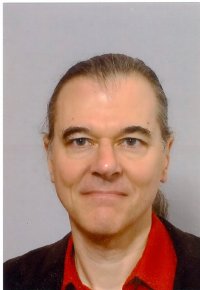 This was my third MET conference, and I have found all of them rewarding and beneficial. MET is a very well-organized group and the conference always runs in a smooth and professional manner. The quality of the presentations and speakers is generally excellent. I sometimes hear two complaints: either there is too much emphasis on academic language (according to the translators) or there is too much emphasis on translation (according to the editors). Although I may be at a bit of an advantage since I work in both fields, I personally find the balance between the two very good.
This was my third MET conference, and I have found all of them rewarding and beneficial. MET is a very well-organized group and the conference always runs in a smooth and professional manner. The quality of the presentations and speakers is generally excellent. I sometimes hear two complaints: either there is too much emphasis on academic language (according to the translators) or there is too much emphasis on translation (according to the editors). Although I may be at a bit of an advantage since I work in both fields, I personally find the balance between the two very good.
As it happens, the topics chosen by this year’s keynote speakers were less relevant to my own work than they were in previous years, but I suppose that’s just the luck of the draw. Besides, the MET conference offers good networking, the chance to catch up with acquaintances, and a general sense of camaraderie, all in a sunny Mediterranean setting (the weather was particularly good this year). Another beautiful city – Split, Croatia – has been chosen as the setting of next year’s conference, so my calendar is marked. How about yours?
Joy Burrough-Boenisch
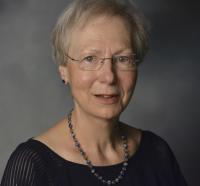 As a freelance editor working primarily for scientists and scholars, I found this year’s MET conference one of the best of the 14 I’ve attended. Here, I’ll mention only the non-plenary sessions I attended but I also enjoyed both the plenaries and fun activities (yoga, burricleta!).
As a freelance editor working primarily for scientists and scholars, I found this year’s MET conference one of the best of the 14 I’ve attended. Here, I’ll mention only the non-plenary sessions I attended but I also enjoyed both the plenaries and fun activities (yoga, burricleta!).
It’s the richness of linguistic resources and expertise among attendees that makes MET conferences so special and rewarding. My pre-conference workshop on editing non-native English, which was again fully booked, attracted 20 attendees with knowledge of 12 languages other than English – including exotics such as Finnish, Bulgarian and Russian but excluding Dutch – so it needed little help from me to draw out insightful comments and discussion. We learned much from each other.
In the conference proper, the panel discussion chaired by Valerie Matarese in which Jackie Senior participated complemented my presentation reporting on the survey of editors’ views on being acknowledged. Jackie’s position (until her recent retirement) as an in-house editor always acknowledged for her work contrasted with the more retiring pragmatic (fatalistic?) approach of the others, all of whom worked for scientists and scholars but were either fully freelance or lacked an appreciative and supportive boss like Jackie’s.
In their excellent joint presentation On being edited: how authors respond, Sally Burgess and Clara Currell (both academics as well as editors) drew on the editing that they’d been subjected to, reminding us not only that editing is a face-threatening act but also to be aware of the hidden agendas of editors, be they jobbing freelancers or – especially – academics who are journal or book editors.
At the other extreme of academic editing, Nigel Harwood’s presentation on ‘proofreaders’ of student texts in UK universities left me with the impression that they are generally neither as skilled nor as foreign-language savvy as SENSE and MET members. His presentation on citation practice in academic texts was useful to me as a teacher of scientific English. This interest was well catered for in two other sessions: Oliver Shaw’s pre-conference workshop in which he showed how genre theory can be used to help scientist authors write (and critically read) the Discussion section of a paper, and Iain Patten’s evangelical presentation in which he advocated integrating research writing into research planning, so that reports and papers evolve with the research, almost writing themselves, rather than being scheduled to be prepared at fixed points in time.
Finally, the six of us attending the ‘Clients who think they know better’ lunch didn’t just pour out woeful anecdotes; we found common experiences across countries as diverse as France, the Netherlands, Spain and Finland, and shared tips on how to avert confrontation and challenges. Therapeutic and fun.
Jenny Zonneveld
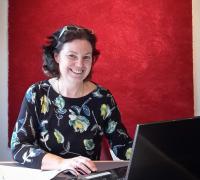 This was my third venture to a MET conference, and I’m sure it won’t be my last. The experience is different from any other conference I’ve been to. It’s a belevenis – the city, meeting up with friends and making new contacts, the off-conference activities, the workshops and of course the conference sessions themselves.
This was my third venture to a MET conference, and I’m sure it won’t be my last. The experience is different from any other conference I’ve been to. It’s a belevenis – the city, meeting up with friends and making new contacts, the off-conference activities, the workshops and of course the conference sessions themselves.
MET has a knack for selecting excellent locations where you can soak up the local history and culture as you go along. And now I’ve got to know some of the MET community, I feel very much at home wherever the location.
MET conferences have something for everyone, and this year I selected the sessions on machine translation and business practice. Michael Farrell gave an interesting talk entitled The stink of machine translation – the take-home message being that machine translation will never match the variety, originality or inventiveness of human translators.
My own talk From Lada to Lamborghini was at the close of the conference, and being Spain where food is served at strange times of the day, this began at what we here in the Netherlands would consider after supper time. Despite this, it was well attended and I hope that more people will now dare to venture outside their comfort zone – as I did in giving this talk – to where the magic happens. It will be very rewarding.
Theresa Truax-Gischler
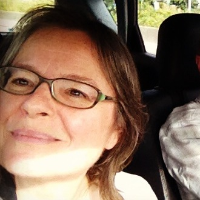 I travelled to the MET conference primarily for anthropologist, editor and translator Susan DiGiacomo’s Friday morning workshop, When the writing is bad but the analysis is good: a practical exercise in editing ethnographic writing, and it remains the highlight for me, hands down. Organized as a seminar, the workshop centred on the editorial analysis of an original draft text of a journal article that had, after revising, been accepted for publication this year in the high-ranking journal, American Ethnologist.
I travelled to the MET conference primarily for anthropologist, editor and translator Susan DiGiacomo’s Friday morning workshop, When the writing is bad but the analysis is good: a practical exercise in editing ethnographic writing, and it remains the highlight for me, hands down. Organized as a seminar, the workshop centred on the editorial analysis of an original draft text of a journal article that had, after revising, been accepted for publication this year in the high-ranking journal, American Ethnologist.
One of the major problems writers across the social sciences have in crafting their work is the effort to bring two very different discourses together into a single, coherent text. It can be quite difficult to bring the highly localized evidence you’ve gathered – whether it be from a village in Europe, a city in Asia, a piece of art, a social movement, a religious ritual or an organization – into the same space as the abstracted and seemingly ethereal concepts and theories within your discipline. Many social scientists obtain reams of fabulous data during their research phase, but then struggle to find a theoretical lens through which to view it. How can you place the unique local data you’ve gathered into conversation with the work of other scholars in your field or those in related areas of critical thought?
To answer this question, Susan presented the best leveraging of Clifford Geertz’s classic ethnographic concepts that I have ever seen. Because ethnographic work in the social sciences is ‘empirical, but not empiricist’, she told us, ‘experience-near’ local knowledge and vocabularies – the raw stuff of qualitative data before it’s been interpreted – must be juxtaposed with ‘experience-distant’ abstract theoretical concepts drawn from the analytic vocabularies of academic specialists. The trick, she explained, is to bring the two vocabularies into simultaneous view such that they ‘vex’ one another and move knowledge forward. In a phrase so pithy that I have tacked it above my editing desk, Susan writes, ‘The intention, as always, is for theory to illumine the data, and for the data to challenge theory, if possible pushing it, and the resulting interpretation, to reach new conclusions.’
The small group of attendees (three no-shows were working on last-minute changes to their own talks) were so moved by the experience of finally having a workshop that speaks to the most difficult elements of editing and translating social science and humanities texts that we organized a Saturday lunch meetup to discuss the possibility of creating a MET Humanities special interest group. Headed up by Sally Burgess of the University of La Laguna together with Alan Lounds of the Universitat Politècnica de Catalunya and me (freelance editor Theresa Truax-Gischler), the group’s initial goal is to organize a panel for next year’s MET conference in Split that focuses on the writing, editing, translation and teaching of texts in the humanities, social sciences and literatures. Because these genres are topographically distinct from the genres of the hard sciences, a special stream within MET seemed appropriate. In the words of sociologist Howard Becker, these genres all ‘tell about society’ albeit in distinct ways. As of this writing, the new MET special interest group has 23 members. If you are interested in joining the group, please email me at
Curtis Barrett
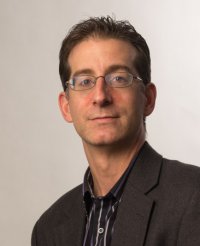 I’ve been a member of both SENSE and MET since 2011, and even though I’m quite active in SENSE, for the most part I’ve been a bit of a shadow member of MET. But after years of fellow SENSE members asking why I don’t go to the MET conferences, I decided to head to Girona this year to see what all the fuss is about. And I must say, I was extremely pleased!
I’ve been a member of both SENSE and MET since 2011, and even though I’m quite active in SENSE, for the most part I’ve been a bit of a shadow member of MET. But after years of fellow SENSE members asking why I don’t go to the MET conferences, I decided to head to Girona this year to see what all the fuss is about. And I must say, I was extremely pleased!
From the pre-conference workshop on citations, to the meals, to the packed sessions during the conference itself, I found the entire experience engaging and stimulating. Everything was quite smoothly organized, and I found that as a strict non-translator (my core business is editing) there was plenty in the programme to choose from. The location was charming, easy to get around and offered plenty of opportunity to work my muscles trudging up the hills.
One thing that struck me was the way a relatively small conference can have a large-conference feel. During the first plenary lecture, I looked around the hall and saw it was fully packed, making me think that the meeting had drawn around 400 attendees. But later, I asked one of the organizers and was surprised to learn that the actual number was 175.
So to sum up my experience? Thoroughly positive! I’m definitely adding the MET conference to my list of must-go-to events each year, and I’m looking forward to next year’s conference in Croatia. See you there?

